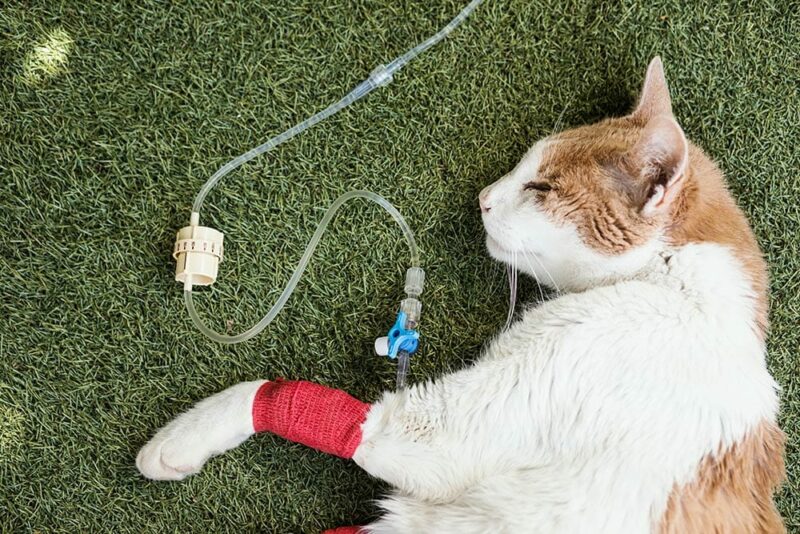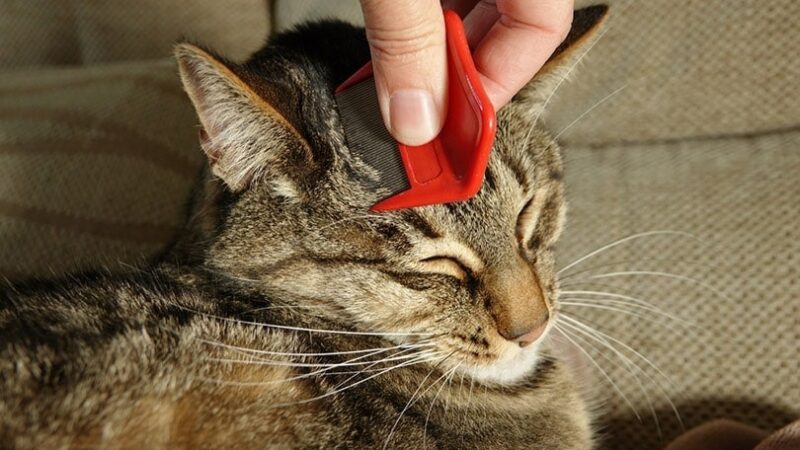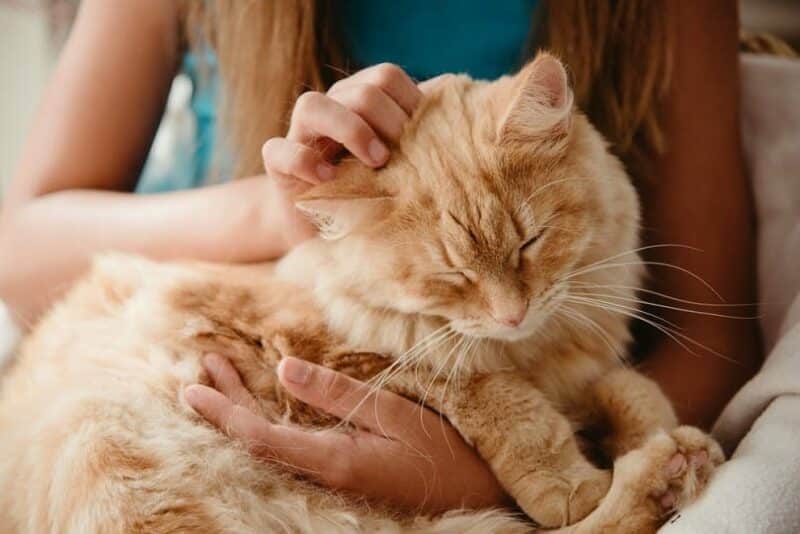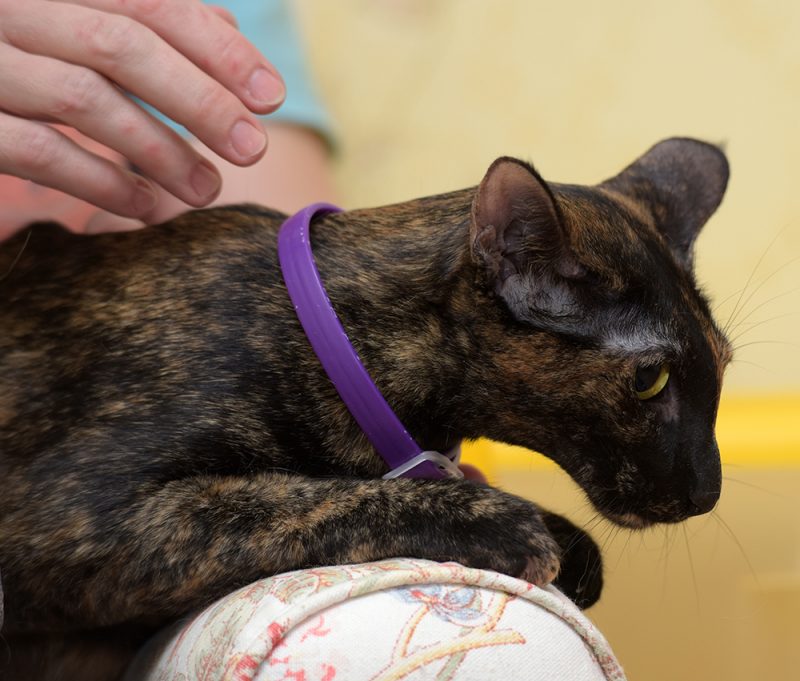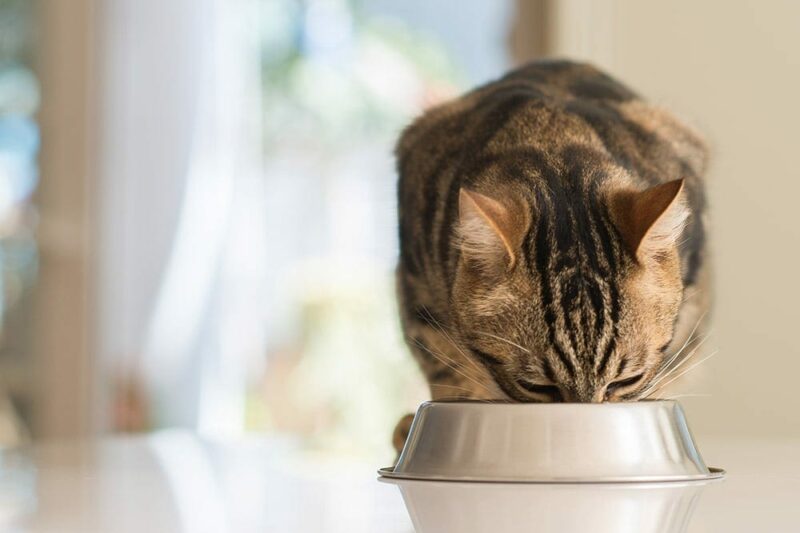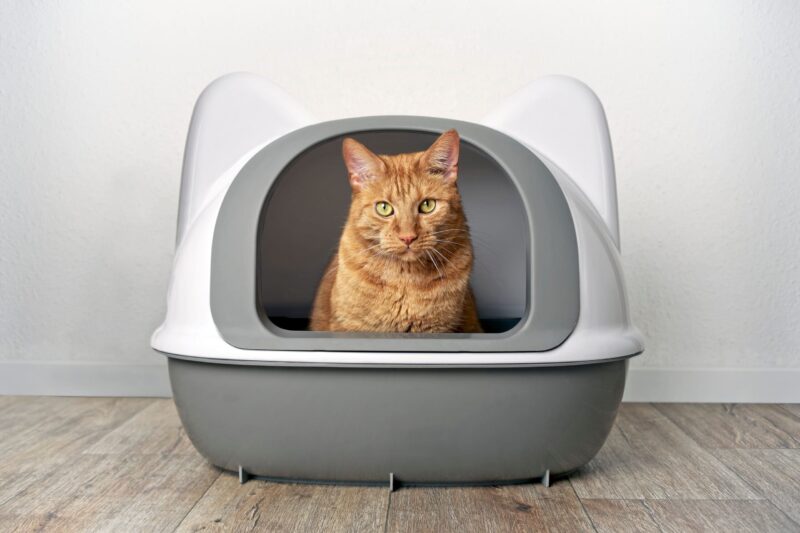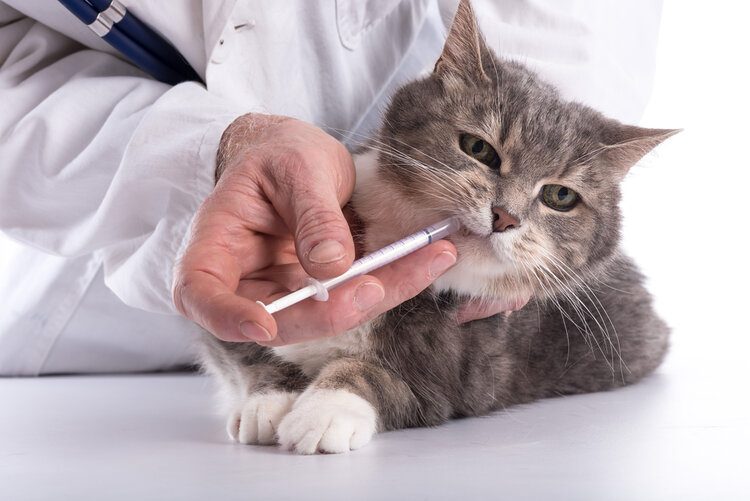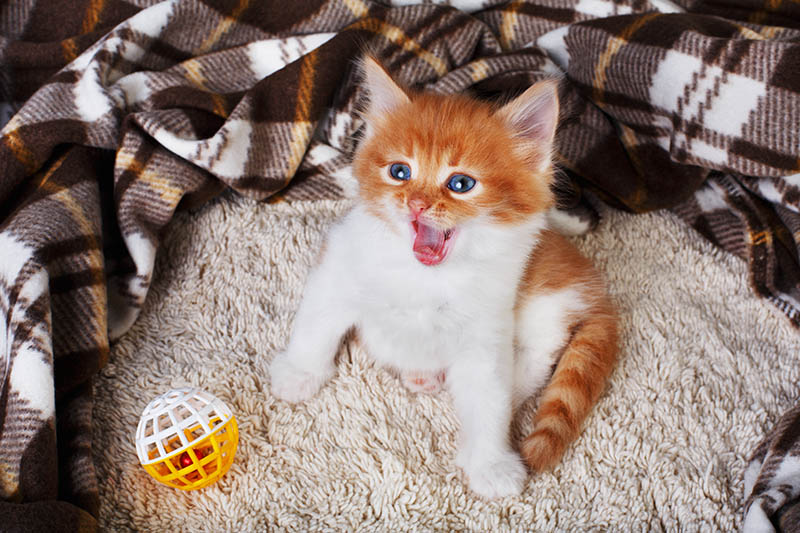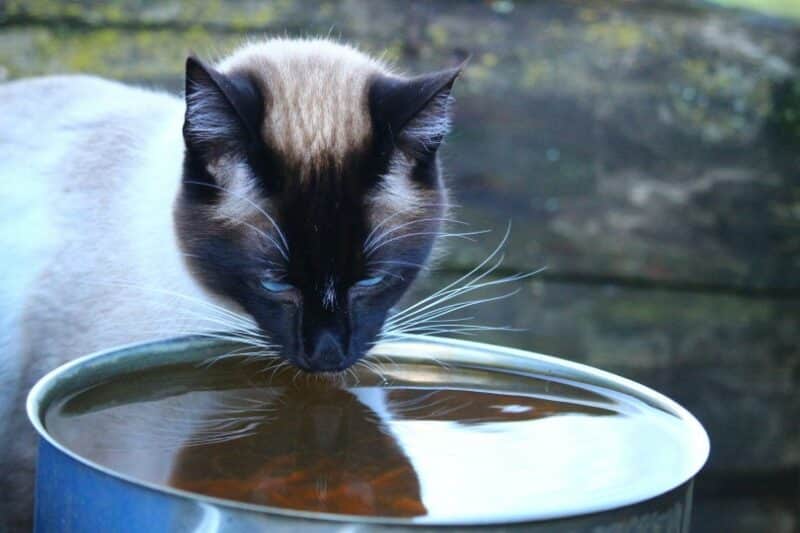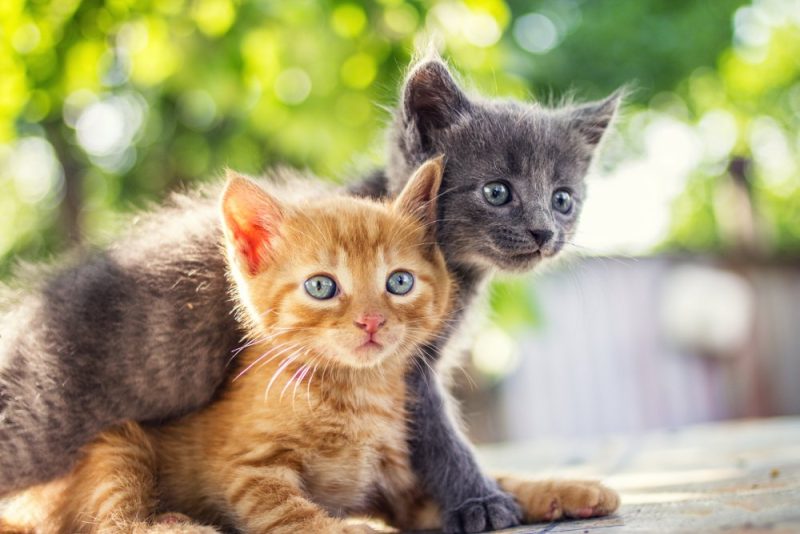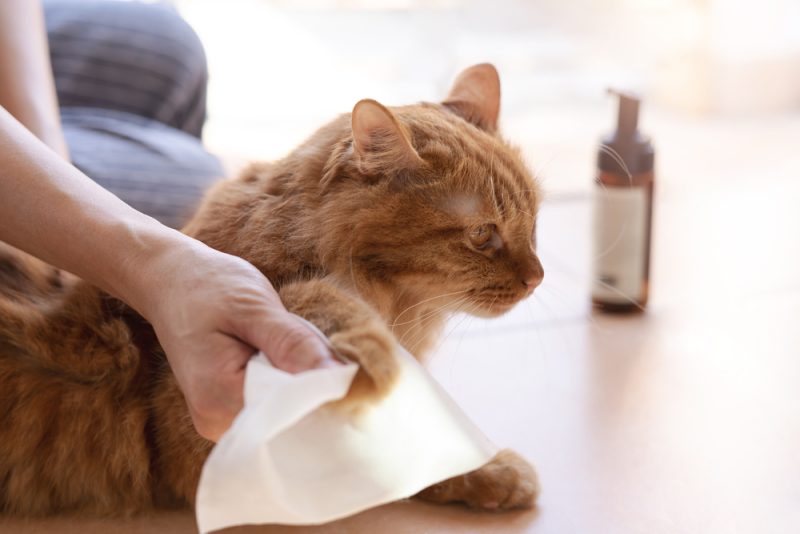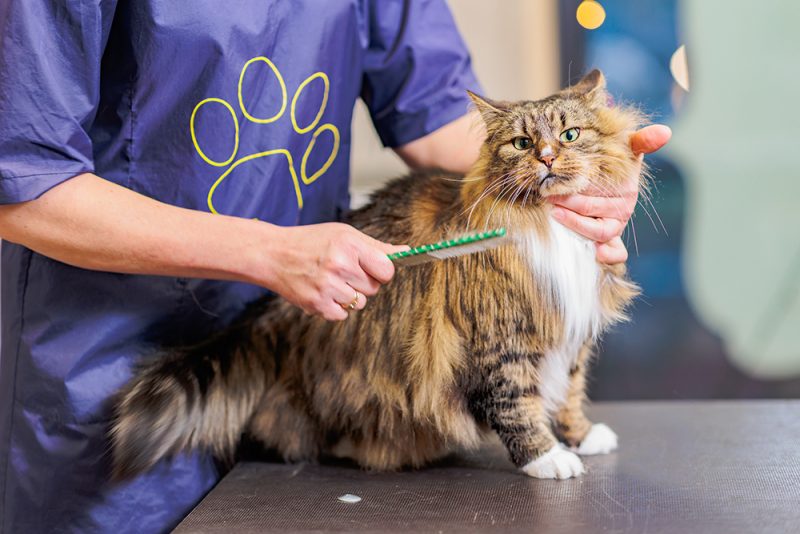In this article
View 4 More +Kidney, or renal failure, in cats is a very common condition. Most cats will suffer from chronic kidney failure, which means that, over time, the kidney degenerates and loses the ability to function properly. With chronic kidney failure, there is very little that can be done to help a cat recover. However, there are things that can be done to keep the cat comfortable and stable as the disease progresses.
Some cats will suffer from acute kidney injury. In some of these cases, with appropriate treatment, your cat may have a good chance at complete to almost complete recovery. Unfortunately, in other cases of acute kidney injury, your cat may still succumb to the disease and be unable to recover.

What Is Kidney Failure?
Kidneys are considered in “chronic failure” if they have a persistent loss of function over time. The function of the kidneys is to filter the blood and make urine. When one or both kidneys start to fail, they are unable to appropriately filter the blood and/or make concentrated urine. Because each cat has two kidneys (unless, in the rare case that they were born with one or lost one at a young age), cats may not display any abnormal signs until the disease has already progressed. This is because the other kidney will compensate and “pick up the slack” for a period of time. Over time, both kidneys will typically fail.
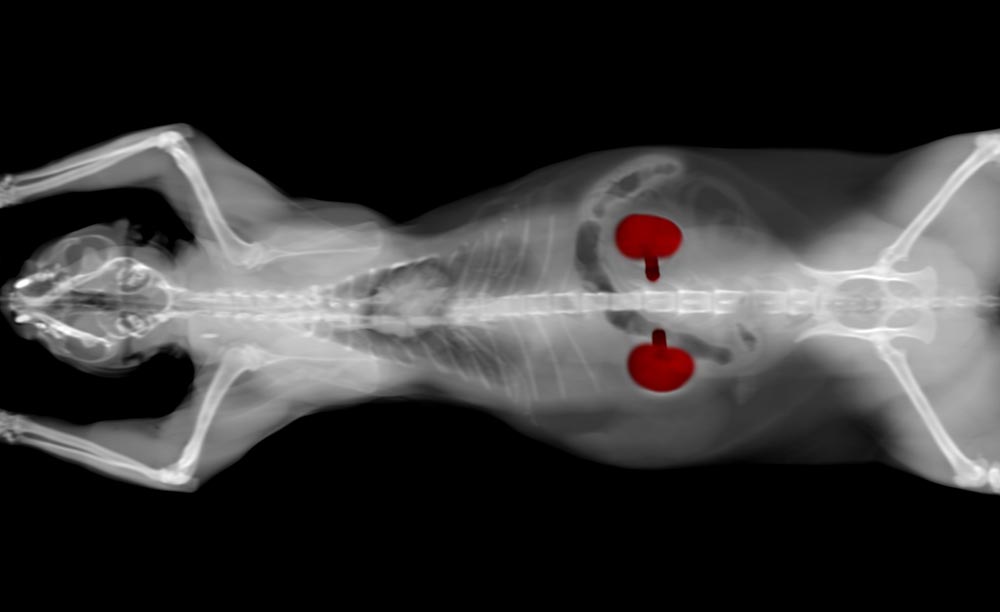
How Can My Vet Diagnose Kidney Failure?
Kidney failure is diagnosed with testing completed on paired blood and urine samples. The bloodwork will show an increase in the BUN and Creatinine. The urine is often dilute (not concentrated like normal) and may also have protein present due to the inability of the kidneys to filter that protein.
Early detection in bloodwork can now be found with an increase in a value called SDMA. Your veterinarian will discuss these values with you, their levels, and what they mean. There are other factors that can affect these values, such as dehydration. Therefore, your veterinarian will discuss your cat’s specific results.
What Are Signs of Kidney Failure?
One of the most common signs of kidney failure is increased drinking and urination. You may notice your cat is going into the box more frequently than usual, and they are urinating larger amounts than usual. The increase in urination is secondary to the kidneys being unable to concentrate the urine like normal. Therefore, the urine will also be more dilute or clear in color.
Because your cat will be urinating more frequently, they will also drink more to try and counteract dehydration. Cats with chronic kidney failure will also lose weight over time. It will not happen overnight, but your veterinarian may notice a slow decline in weight during their exams.
In end-stage kidney failure, cats can become severely nauseous. Cats will often start to vomit, be anorexic, and be unable to even keep water down. Cats will also develop a distinct odor to their breath that some people are able to recognize. This is due to the build-up of waste products that the kidneys are unable to filter.
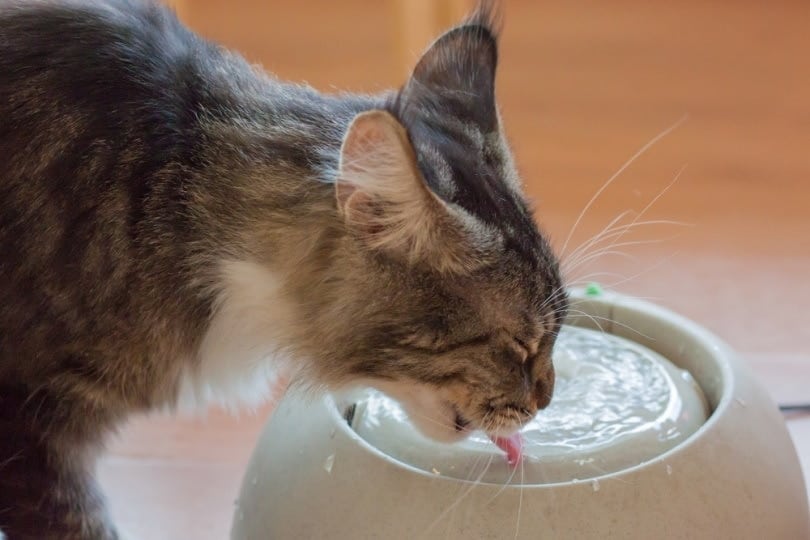
Can Chronic Kidney Failure Be Cured?
Unfortunately, no. Once the kidneys fail, they do not typically regenerate or heal. In veterinary medicine, we do not perform kidney transplants.
While some hospitals do offer dialysis, this is very rare, extremely expensive, and most often used in acute injuries. If owners have the financial means to pursue dialysis, it can be difficult to find a facility that offers this service, and your cat may or may not be a candidate.
Cats can be kept comfortable and still have a good quality of life despite being in kidney failure.
What Can Be Done for Chronic Kidney Failure?
This is dependent on how elevated your cat’s values are on bloodwork and how they are feeling. Your veterinarian may want to hospitalize your cat on IV fluids. If the values are not that elevated, your veterinarian may just put your cat on a prescription kidney food and monitor bloodwork regularly. Still, other cats may be able to receive fluids at home. The long-term treatment is decided on a case-by-case basis and should always be discussed and managed by your veterinarian.
If you need to speak with a vet but can't get to one, head over to PangoVet. It's an online service where you can talk to a vet online and get the advice you need for your pet — all at an affordable price!

What is Acute Kidney Injury?
Acute injury is when the kidneys are suddenly unable to function properly (hours to days). If an acute injury persists or continues to cause damage, it can progress to acute kidney (or renal) failure.
Causes of acute injury include bacterial infection (pyelonephritis), leptospirosis infection, toxins (lily ingestion, human medication ingestion, NSAID ingestion), blood clots, and cancer.
A complete history will be taken by your veterinarian to help determine a cause. If you know that your cat licked or ingested anything abnormal—including, but not limited to, lilies, human or animal NSAIDs, and blood pressure medications—please contact your veterinarian or Poison Control immediately.
Can a Cat Recover from Acute Injury?
Yes, however, the mortality rate is still high. Acute kidney injuries require aggressive care. Depending on the cause, strong antibiotics may be needed to clear an infection, and medications may be needed to regulate blood pressure abnormalities. Some cats may require dialysis to have a chance at recovery. In almost any case, multiple days of aggressive IV fluids are needed to help constantly flush the kidneys, keep toxin buildup as low as possible, and help keep the cats hydrated and stable.
A severe kidney injury can rarely be treated with at-home therapy. Therefore, cost can be a prohibiting factor in survival. These severe cases often require around-the-clock care, fluids, medications, and monitoring—escalating costs into the thousands.
Even with aggressive care, cats may still pass from this disease. It depends on what caused the initial injury, how affected the kidneys are, and how sick your cat is. If the kidneys worsen, despite aggressive care, it is likely they will not improve and recover.
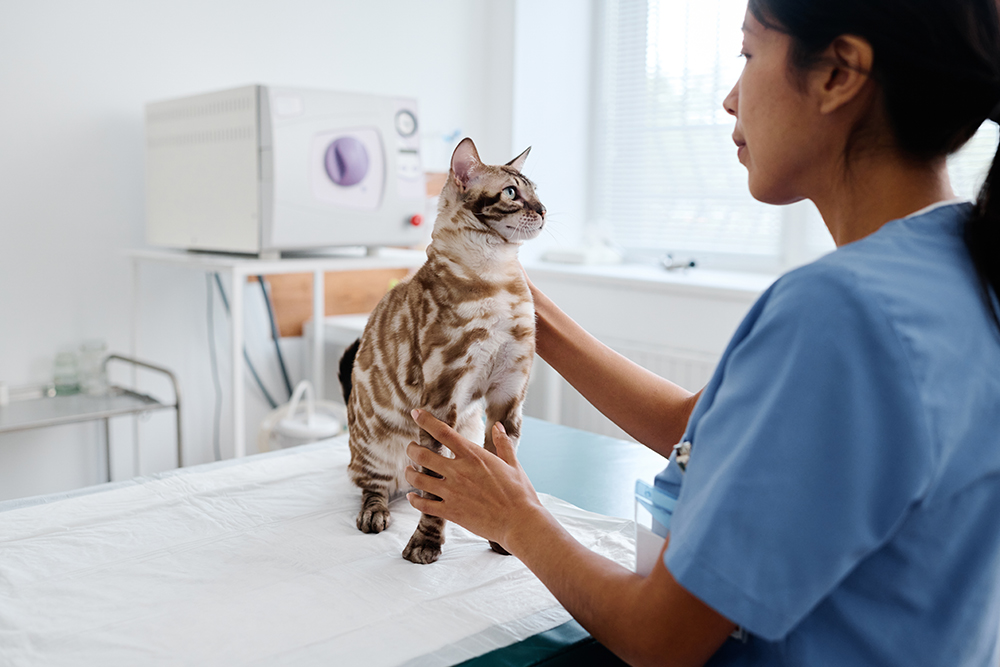

Conclusion
Many cats will be affected with chronic kidney failure in their lifetime. While cats can have a good quality of life for months to years, depending on the progression of the disease at diagnosis, there is no cure for chronic kidney failure.
With acute kidney injury, if caught and treated aggressively early on, your cat may have a chance to recover. Unfortunately, the mortality rate with even acute injury is very high in cats.
Care for chronic or acute kidney disease should always be managed by a veterinarian.
Featured Image Credit: Lost_in_translation, Shutterstock
